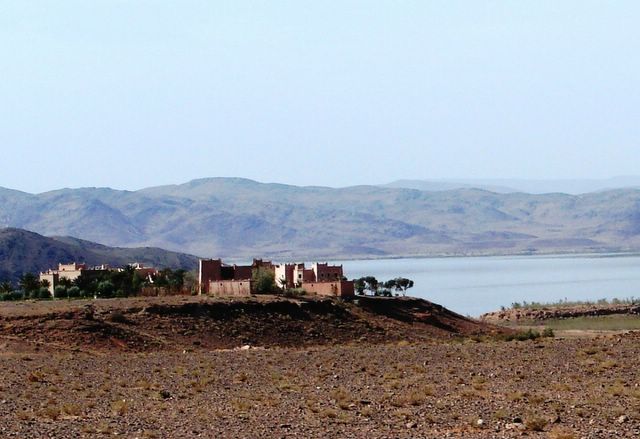A Display of Prejudice Veiled in Concerns About Security
I will start this post by first expressing my disappointment at those Americans who are exercising their prejudice in opposition to a global free market transaction this week. Those who are coming out swinging on the Dubai port story are at a minimum misinformed about the state of today's global business. But I refuse to believe that the leaders of the United States Congress are misinformed - On this issue, it is safe to say that their "outrage" and fear-mongering is at least partly rooted in xenophobia and driven by political opportunism - one that seeks to tap into latent prejudice (what Dr. King once referred to as a societal sickness) and post 9/11 fears and protectionism.
The president is doing the right thing on this issue. He is standing up against his own political party to make a strong statement against prejudice in contemporary America. He is sending exactly the right message, which America desperately needs in order to start the healing process for its image overseas while democrats and republicans in Washington are busy sending the wrong message to the world - a message that would invariably validate the cynicism and anti-Americanism of many around the world.
Those who are rallying the wayward train on this issue know very well what the other side of the coin to their rhetoric is. They know that US companies are earning millions of dollars in Dubai construction and expansion projects. They know that US firms manage major oil infrastructure in Gulf countries, which by American standards are of special national security interest to local Arabs.
If security is their only concern, then it would be helpful for them to remember that General Abizaid and CENTCOM are sitting in Doha, Qatar and that a network of US military support services are based in the Gulf, including in the UAE where US Naval ships dock quite frequently.
If foreign control of US strategic assets is their concern, then maybe they ought to know (and they do) that Toshiba, a Japanese company, is on the verge of buying Westinghouse Electric Co., a builder of nuclear power plants, and that government-owned Chinese companies are currently managing a container port in long beach, California, as well as both sides of the Panama Canal.
These same critics are also aware of the fact that Dubai Port World operate port facilities in three continents already, with presence in countries like Australia, Romania, Germany, China, India, Venezuela, and the Dominican Republic. The present contract for the six US ports was managed by Peninsular & Oriental Steam Navigation Co., a British company, until the takeover by DP World. The same union workers and the same procedures used under the Peninsular contract would be used under the DP World contract. DP is not going to ship in thousands of workers from Bangladesh. Even if you believe that U.S. customs and immigration authorities are utterly blind, you have to concede that American labor unions will raise hell at the slightest change in job conditions and/or suspicious cargo activity - they are, after all, American citizens before being American workers.
Globalization is not the sole property of American enterprise. It is called 'globalization' for a reason - it is why a government-owned Spanish company (AENA) is managing several airports in Mexico; why private foreign companies control some 45% of Algeria's crude oil production; and why private Indian firms are competing for major stakes in the U.S. software industry.
The "uproar" does not have much to do with security. The contract in question is about operation and management of port facilities. The security function is the responsibility of federal law enforcement and intelligence agencies. Yes, the topic of port security is deserving of much attention. There are many things the government can do to enhance port security by developing and deploying advanced sensor technology and increasing staffing levels of security and customs personnel. They can also greatly improve their intelligence capability in order to deal with threats in a non-intrusive, yet effective fashion.
American lawmakers will be betraying their own history if they shut down global trade transactions or discriminate based on national origin - because it is protectionism and the old beast of discrimination which pose a much bigger menace to American economic and national security than the inherent risks of open trade and open societies.

























